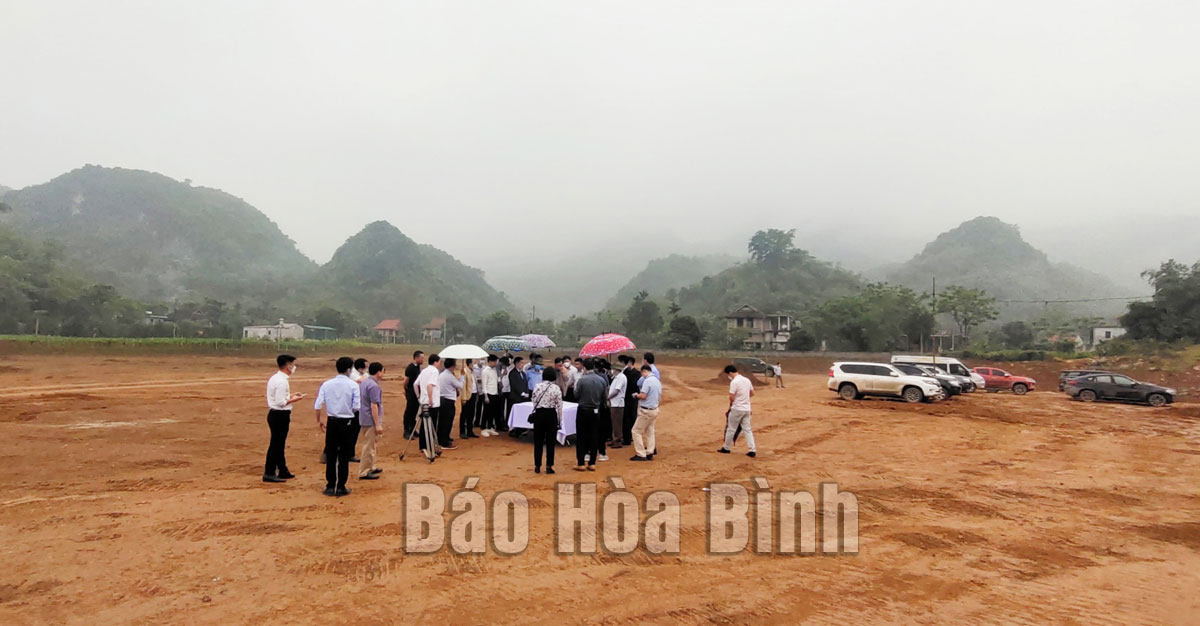


(HBO) - Cooperation with factories manufacturing wood pellets is expected to help farmers improve productivity, quality, and economic efficiency from afforestation.

The BVN Hoa Binh Company’s factory making wood pellets and other wood products in Bai hamlet in An Nghia village, Lac Son district.
The factory is about 6.5 hectares in area and is licensed to use 22,000 hectares of raw acacia wood.
It is due to be completed and put into operation next year, with wood pellets being its main product.
Mr. Lai The Vinh, Director of the BVN Hoa Binh Company, said that, in the past, tree branches were often used for producing fuel. The company therefore makes use of not only logs but also tree branches to produce wood pellets.
This in turn boosts the incomes of farmers, encouraging them to plant forests and improve management.
Contributing to afforestation for many years, Ms Bui Thi Dang’s family in Coi hamlet, Vu Binh village, in Lac Son district have often wondered how they could improve productivity and forest quality.
She said her family are in charge of 8.9 hectares of acacia trees, which they have maintained for a short cycle, of about 5 to 6 years, yielding about 70-80 tons per hectare.
Productivity, however, has fallen short of expectations due to inappropriate planting techniques and unsustainable seeds.
The sale of acacia wood can also be problematic due to fluctuating prices and a lack of purchasing commitments from buyers or processors.
"Through cooperation with the wooden pellet factory, we want to improve our productivity and the quality of our planted forests,” Ms Dang said. "The price of acacia wood would then increase, and growers could earn more.”
Other forest growers in Lac Son district and elsewhere in the province share a similar goal.
Hoa Binh is currently home to a total forest area of 236,420 hectares, of which 94,806 hectares are planted.
"The province’s forestry sector is facing a number of challenges, in productivity, quality, and the low value of planted forests,” said Mr Vuong Dac Hung, Deputy Director of the provincial Department of Agriculture and Rural Development. "The processing of wood and non-timber forestry products has not been fully developed and has failed to create a sustainable forestry value chain, from development and protection to processing and trade.”
He added that few forested areas have certificates in sustainable forest management and fail to meet demand among processors for raw wood for export.
The BVN Hoa Binh Company’s move to build a wood pellet factory will help promote the planting of large trees and boost efforts to obtain certificates in sustainable forest management.
It will also help ensure households’ participation in developing the acacia wood value chain, towards obtaining a certificate in sustainable forest management for 7,000 ha of forest.
The factory is expected to help boost afforestation management and farmers’ livelihoods while contributing to resolving the challenges and limitations facing the local forestry sector./.